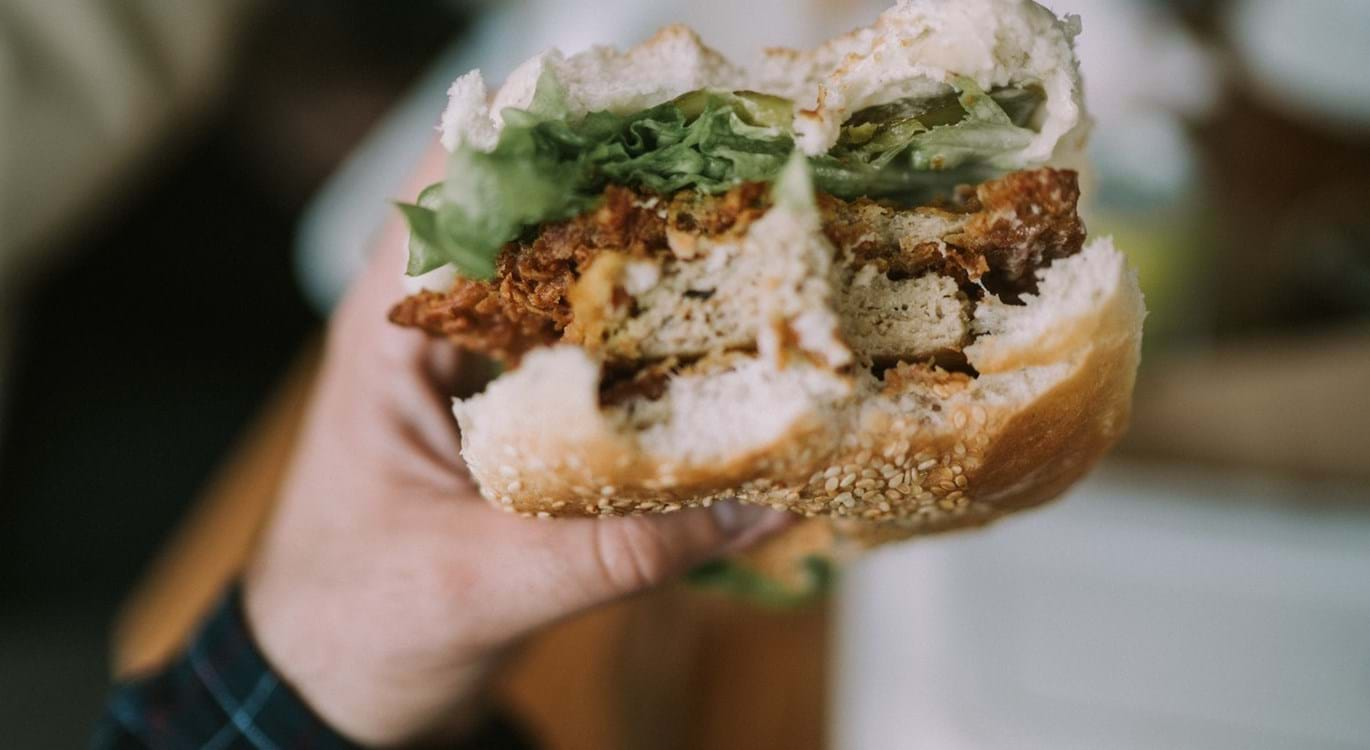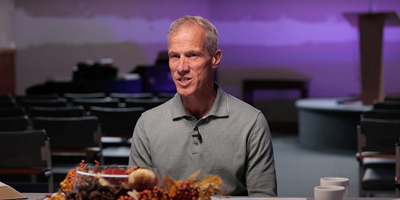Around the same time, Gavin Peacock wrote, “People don’t need to have a six pack or the body of a supermodel, but we must recover the importance of self-control & how it relates to the body. Obesity, or rather gluttony, is under-addressed in the church. Sometimes obesity is a medical issue. Most times it is a sin issue.”
Overindulgence in food is a sin that the Bible speaks about, but one that has never been addressed in the thousands of sermons I’ve heard. Is it the ‘Respectable Sin’ that should not be spoken about?
Gluttony in the scriptures
Paul, in writing to Titus about the people of Crete, confirmed the dreadful testimony of a local poet called Epimenedes.
“One of them, a prophet of their own, said, "Cretans are always liars, evil beasts, lazy gluttons. This testimony is true. Therefore rebuke them sharply, that they may be sound in the faith” (Titus 1:12-13).
The loving father in the book of Proverbs imparts wisdom to his son, telling him:
“Hear, my son, and be wise; and guide your heart in the way. Do not mix with winebibbers, or with gluttonous eaters of meat; for the drunkard and the glutton will come to poverty, and drowsiness will clothe a man with rags” (Proverbs 23:19-21).
The wisdom of not mixing with those who drink alcohol to excess is, quite rightly, a well-trodden path but the associated wisdom to do the same with those who are gluttonous is not. Yet it is not for us to separate the scriptures we are comfortable with from those that make us uncomfortable. William MacDonald writes, “There are two kinds of "drunkards"—those who drink too much and those who eat too much. They both make bad company for anyone who wants the good life. Intemperance takes its toll.”
Finally, you may recall how the Lord Jesus was insulted by the Pharisees and lawyers.
“The Son of Man has come eating and drinking, and you say, 'Look, a glutton and a winebibber, a friend of tax collectors and sinners!’” (Luke 7:34).
We will be eternally thankful that He was a friend of tax collectors and sinners and that he died to save sinners and secure for them all the blessings of salvation. However, there was no truth in the accusation that He was a winebibber (drunkard) and a glutton. Gluttony, like all sins, had no place in the life of the Lord Jesus, and the same should be true of His people. The biblical command is for believers to be harsh on their own sin, taking radical action wherever necessary.
Your body is not your own
Food is an essential gift from God for which we are thankful. Without it we could not survive. Moreover, He has given us a great diversity of foods that can be enjoyed to His glory. But like all good things, food can be abused.
Gluttony results from a person allowing a craving for food to conquer them. Paul reminds Christians that we are not to be enslaved to anything or anyone, except the Lord.
“All things are lawful for me, but all things are not helpful. All things are lawful for me, but I will not be brought under the power of any” (1 Corinthians 6:12).
If I have succumbed to the sin of gluttony, then I am enslaved to food indulgence and I am not glorifying God in my body, which is not my own but Christ’s.
“For you were bought at a price; therefore glorify God in your body and in your spirit, which are God's” (1 Corinthians 6:20).
Self-control is essential
Peacock was correct in his statement that not all who are overweight are gluttons. Obesity can be due to a medical condition. Nevertheless, being significantly overweight or obese is usually due to a lack of self-control. Self-control is called for in all areas of the Christian’s life. It is a feature of the fruit produced by the Holy Spirit who indwells every believer.
“But the fruit of the Spirit is love, joy, peace, longsuffering, kindness, goodness, faithfulness, gentleness, self-control. Against such there is no law” (Galatians 5:22-23).
A lack of self-control in one area of life will mean that we are greatly weakened in other areas, as no one can pick and choose the areas where they will exercise self-control. Further, a lack of spiritual discipline in any sphere will hinder spiritual growth. The Christian life is one of confronting our cravings and saying “No” to them.
Although we can advise the drunkard to find an alternative route so as not to walk past a public house it is impossible to tell the glutton to avoid food! Nevertheless, there are practical steps that can be taken. Let me suggest a few:
- Learn what is the make-up of a healthy diet and follow that plan.
- Remove temptations from the cupboards and say “No” to sweets on the supermarket shelves.
- Cut out eating between meals.
- Desserts are great but maybe limit them to one a week!
- Cut portion sizes.
- Vastly reduce or even eliminate the intake of junk food with little nutritional value.
Cultivate a greater appetite
We have dealt with the subject negatively but is there anything positive to state?
We develop too great an appetite for eating because of a lack of appetite for better things. John Piper helpfully states that a lot of gluttony is due to boredom. He writes “We need to cultivate a range of appetites for great and good things, things like good literature, people's fellowship, reading the Bible, nature, work, etc. Discover these other appetites so that things other than food can satisfy you. Then pray earnestly and cultivate and nurture these satisfactions.”
Although being overweight is most commonly linked with overeating, remember that gluttony is the problem of overeating itself, not how much you weigh.
Do you struggle with gluttony? Are you now convicted about a sin of gluttony? It is something that can be tackled and overcome by the power of the Holy Spirit who works mightily in every willing believer to conform them to Christlikeness.
























